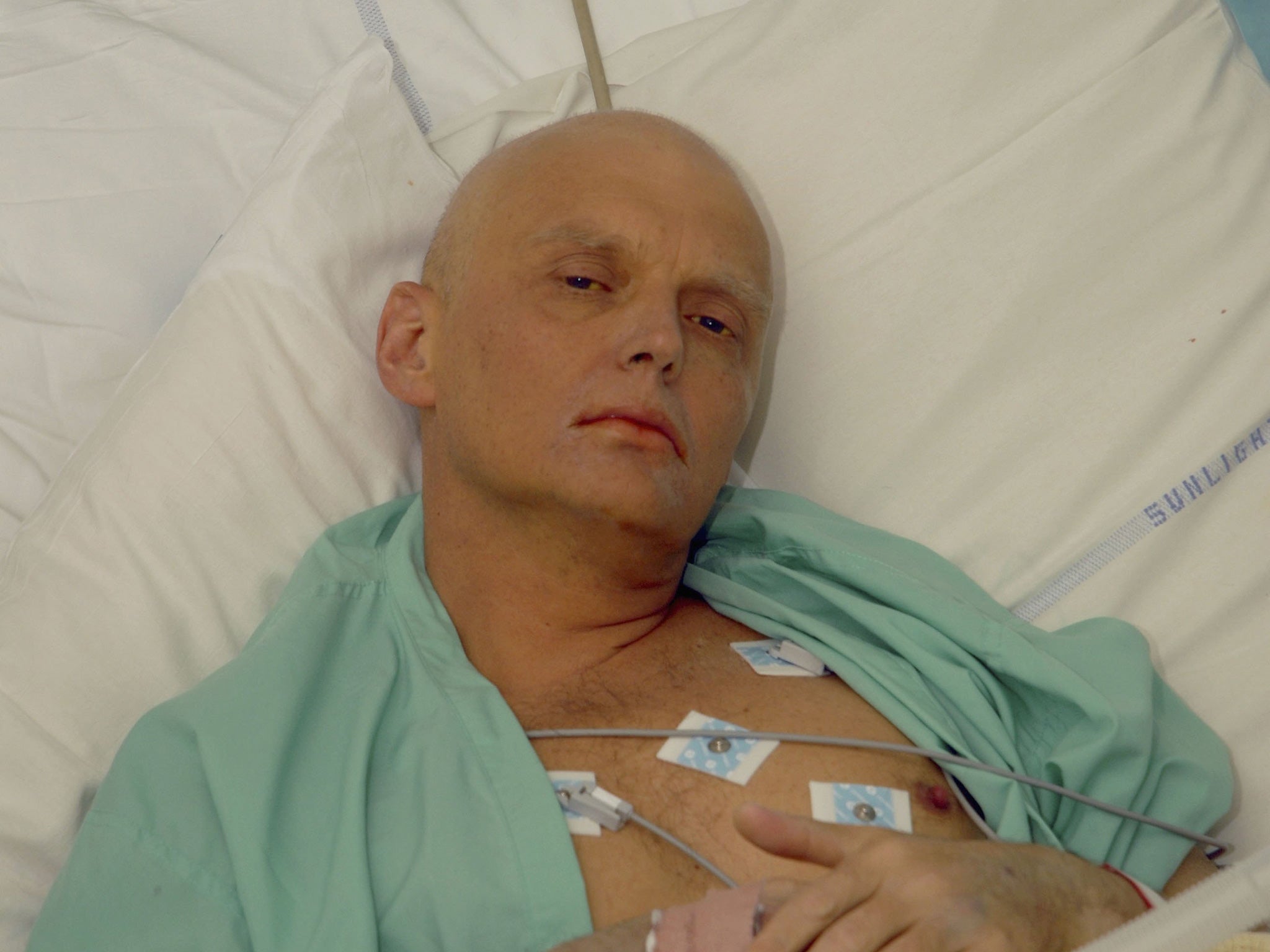Alexander Litvinenko killing: Russian accused of murdering former Soviet spy says he probably killed himself after touching polonium
‘My main version is that it was an accident’

One of two Russians accused of poisoning ex-Soviet spy Alexander Litvinenko in London says his “main version” of what happened was that the former KGB officer killed himself accidentally while handling radioactive polonium.
The death in 2006 of Litvinenko, who accused Russian President Vladimir Putin of ordering his murder, helped drag relations between Moscow and London to new post-Cold War lows and Britain launched an inquiry into the death last year.
British authorities believe Litvinenko was poisoned with green tea laced with polonium-210 during a meeting with two men, Dmitry Kovtun and Andrei Lugovoy.
The Kremlin has denied any involvement and refused to extradite the suspects. Kovtun is due to give evidence to the London inquiry via video link.
At a rare news conference in Moscow, Kovtun said Litvinenko's death could be classified as "inadvertent suicide".
"My main version is that it was an accident," said Kovtun, adding that he believed Litvinenko had been exposed to polonium before their meeting.
"I am more than certain he dealt with polonium without even knowing it. It might have been a leak and polonium was accumulating in his body gradually."
He added: "I don't know whether he had it on him or someone gave it to him. It's entirely possible he carried something with him and polonium gradually accumulated in his organism, and led to his death."
Kovtun said his own health was largely fine despite exposure to radiation due to meeting Litvinenko.
The inquiry said it would grant Kovtun "core participant" status providing he meets certain conditions and expected him to give evidence by video link at the end of July.
Britain had initially decided not to hold an inquiry but changed its mind last July as ties between Moscow and the West soured over the conflict in Ukraine.
Reuters
Subscribe to Independent Premium to bookmark this article
Want to bookmark your favourite articles and stories to read or reference later? Start your Independent Premium subscription today.
